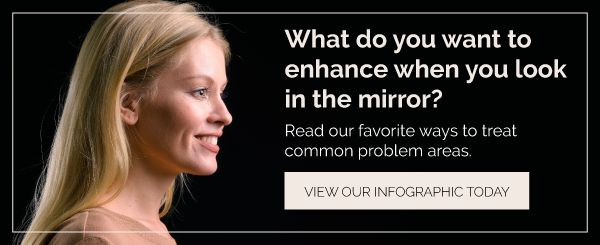Skin texture changes are those changes in your skin that can leave you looking tired, worn, and older than you are or than you would like to look. They can happen because of your genetic predisposition, or because of your lifestyle. There are a variety of skin texture changes and each person will experience individual issues, but the most common are wrinkles, scarring, pigmentation like age spots, dry skin, and rough skin.
We’ve covered the causes of wrinkles and pigmentation issues already this month, but what causes the other skin texture changes we can experience over time? Scarring has an obvious answer- scars come from injuries. But with your skin, these injuries can be blemishes, like acne. Acne can leave deep, pitted scars, as well as red spots or other pigmentation changes.
Scars that are not pitted but are pigment-based can be treated with an Intense Pulsed Light (IPL) or laser treatment. Pitted scars can be filled with dermal filler injections, which will raise the surface of the scar until it is even with the rest of the skin surface.
Dry skin occurs naturally as we age. The skin becomes thinner and less able to retain moisture. Dry skin looks less plump, which is why it makes us look older. Dry skin caused by aging can be combated with proper diet and water intake, as well as with the use of proper skin care products. Your plastic surgeon or certified aesthetician can recommend the perfect product regime for you.
Another skin texture change we can experience is roughness. This can occur over our whole face, or just in particular areas. Roughness can have a number of causes, from excess dryness to lack of exfoliation. There are exfoliating products that can help treat rough skin texture, though a laser treatment or chemical peel might also be appropriate. Again, your surgeon or esthetician can make the best recommendation for treatment.
Call us at (703) 574-2588 for more information or to schedule a consultation!

Skin Texture Changes: Causes and Treatments
Schedule a ConsultationPosted February 27, 2013 in Face
